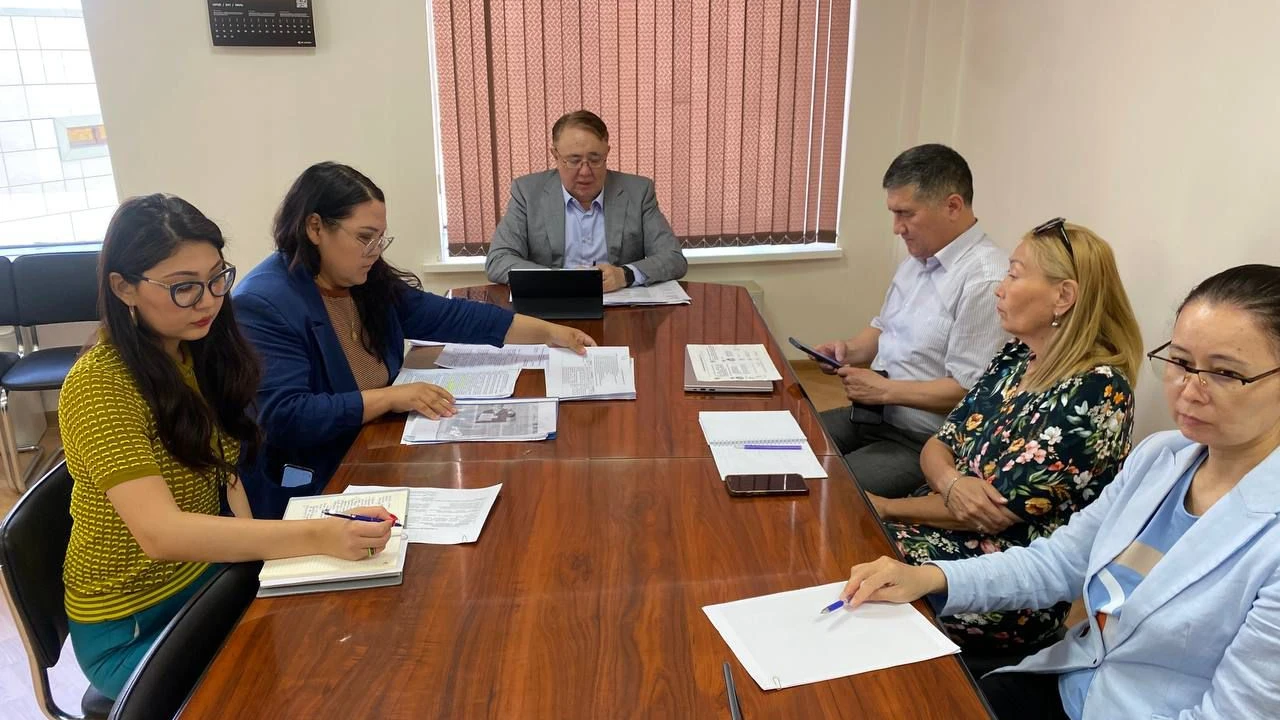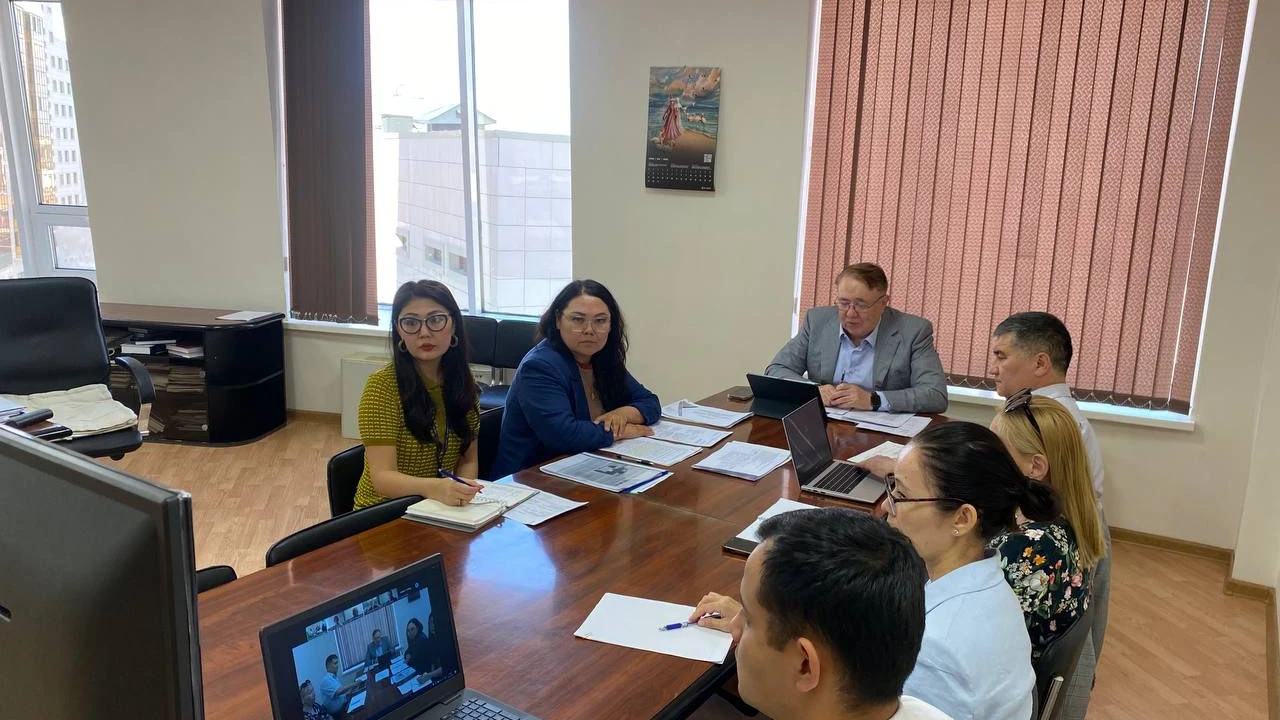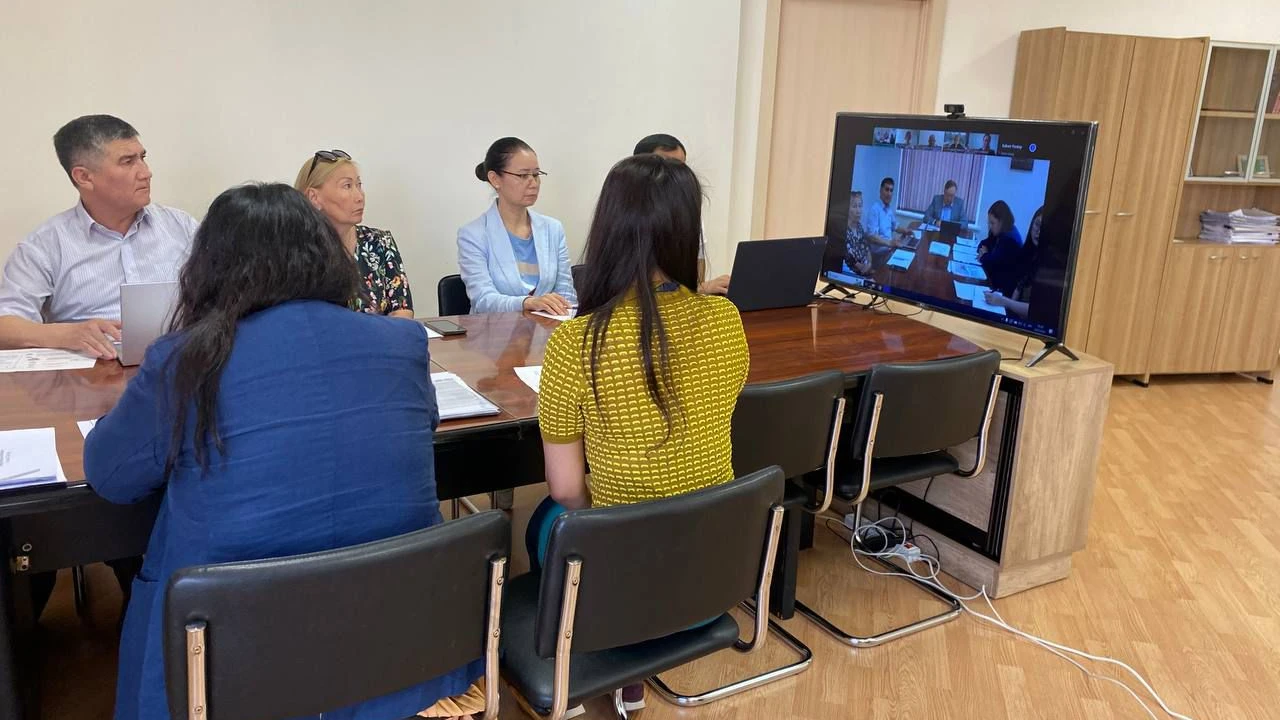


On July 24, 2024, the Center for Private Legislation of the Institute of Parliamentarism, under the leadership of Director, Doctor of Law Kanatbek Beisenbekovich Safinov, held a workshop on the topic "Prospects for the development of legislation on condominiums." The event was attended by international experts.
In particular, representatives of Belarus and Germany participated in the meeting. Gennady Kalenov, a representative of the International Community of Real Estate Managers from Minsk, made a presentation on "International experience in the formation of ownership of residential real estate and its registration. The formation of property in Germany as an example for the countries of Central Asia." Larisa Schreckenbach, Project Manager of the Housing in Eastern Europe Initiative from Berlin, presented the report "Management of the Association of Homeowners (OSJ) – the German experience".
International experts from neighboring countries shared information on regulatory legal acts governing the management of condominiums and suggested directions for further improvement of legislation on condominiums in the Kyrgyz Republic, the Republic of Tajikistan and the Republic of Uzbekistan.
The meeting was also attended by domestic experts, who were asked the following questions:
1. How is the right of owners to a share in the common property secured?
2. What problems arise when choosing the form of management and organization of the AXIS?
3. Which subjects or forms of management are the most profitable?
4. Why is the principle of "one house, one AXIS" unprofitable?
5. How necessary is it to preserve or revive the KSK?
6. Should the institution of Simple Partnership be excluded?
7. What is the responsibility of the Chairman of the AXIS?
8. Is it possible to allow a non-employee to be elected chairman of the AXIS?
9. Is it necessary to allow the combination of management and maintenance of common property?
10. How should the mechanism of contributions for the maintenance and management of common property be established?
11. How to solve the problem of selling an apartment with debts?
12. What are the mechanisms of participation of local governments in the management of the condominium facility?
Following the meeting, positions were developed that will be taken into account in the development of housing legislation.



